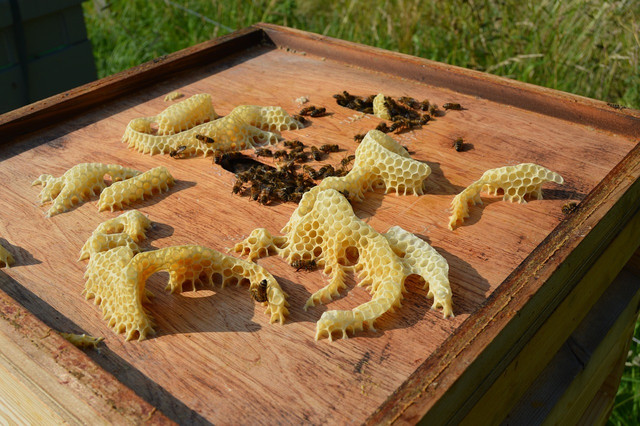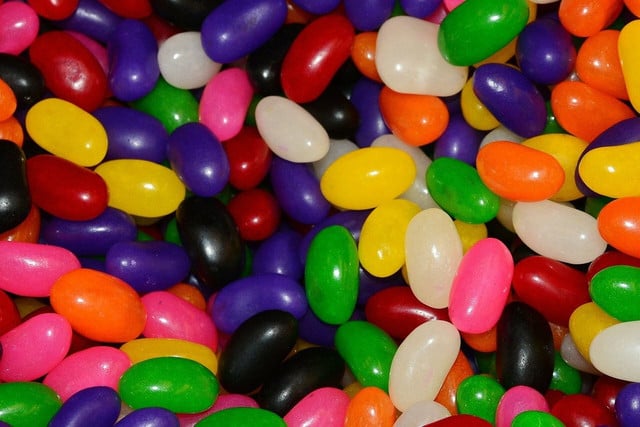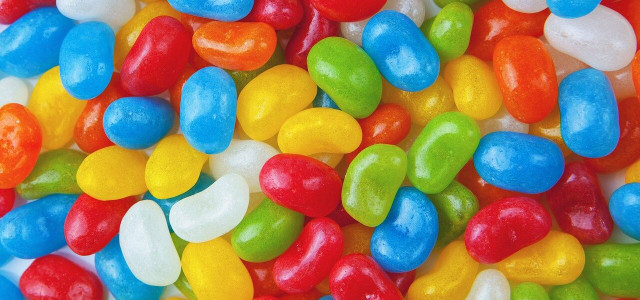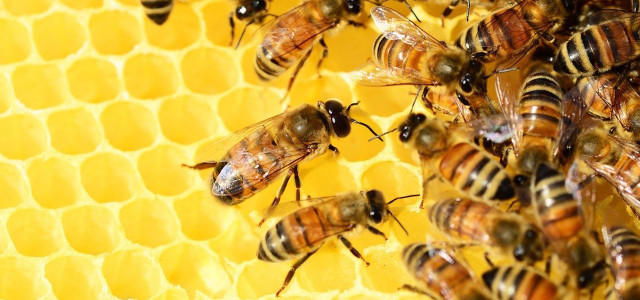Are jelly beans vegan? Many of the colorful candies you see on store shelves contain questionable, non-vegan ingredients, which makes switching to a vegan diet difficult for those with a sweet tooth. Let's take a closer look at jelly beans.
When it comes to answering the question, “Are jelly beans vegan?” a simple answer can quickly become complicated. Some brands of jelly beans are vegan, but the vast majority are not, although this largely depends on your personal definition of veganism.
The common elements in most jelly beans are sugar, tapioca or corn syrup, and starch. However, animal-derived components are frequently glossed over or buried within the ingredient list. As a result, many jelly bean brands contain ingredients that pose a moral quandary amongst vegans.
Non-Vegan Jelly Bean Ingredients

(Foto: CC0 / Pixabay / raypaterson)
If you’ve ever glanced upon a jelly bean and wondered what causes the glossy finish, the answer may surprise you. To achieve that classic jelly bean sheen, a variety of problematic non-vegan ingredients are used in the jelly bean manufacturing process.
There are four main ingredients that you should steer clear of if you want to purchase vegan jelly beans. These ingredients not only give jelly beans their trademark appearance but help them retain a gummy, chewy texture. These include:
- Gelatin — we’ve looked at what gelatin is made of before, and it’s a highly controversial topic. Gelatin is a by-product of the meat and leather industries’ slaughtering processes. The gelling agent is made from collagen, which is found in the skin, bones, and hooves of animals (mostly cows and pigs).
- Beeswax — Is beeswax vegan? This is yet another highly debated topic among the vegan community. Even though humane methods of beeswax collection are available, some industrial manufacturers continue to use cruel methods in an effort to cut corners, save money and boost production yields.
- Confectioner’s Glaze — A common source of confectioner’s glaze is shellac, which is a resin collected and scraped off female beetles, usually resulting in the death of those insects.
- Food Coloring — Food dyes often raise health concerns – according to a review from 2012, some have been found to cause hypersensitivity reactions, while others have been found to be contaminated with carcinogens. More research needs to be done in order to know for certain whether or not they are safe. As they are tested on animals to determine their safety and toxicity, they are inextricably linked to animal cruelty.
Substitute Ingredients and ‘Vegan' Issues
When purchasing jelly beans, look for brands that do not include gelatin or other animal-derived materials such as shellac, beeswax, or confectioners glaze. It’s worth noting too, that carnauba wax is used in certain vegan jelly bean brands as an alternative to beeswax. While carnauba wax is a plant-based alternative, it still poses some dangers to the environment. This goes to show that just because a jelly bean brand is vegan, it doesn’t automatically mean that all the ingredients are sustainable.
Carnauba palms are grown in Brazil, a country famous for its rapid deforestation of rainforest. A German documentary from 2017 showed how workers on carnauba wax plantations are exploited. Initiatives like the Initiative for Responsible Carnauba have since tried to improve production conditions.
When the trees are damaged and harvested, the natural tropical rainforest ecosystem is thrown off balance. Additionally, the long transport routes used throughout the supply chain are CO2 intensive and bad for the environment.
Are Jelly Beans Kosher? Are They Gluten-Free?
Are jelly beans kosher? Yes and no. Since the primary source of animal protein in gelatine is pork, which is strictly forbidden in any form in Kosher dietary law, this means that many jelly-bean brands are out. Fortunately, gelatin-free jelly beans may be found at a variety of grocery stores, just pay attention to the ingredients label.
Likewise, if you’re gluten-free, most confectioners use starch to make jelly beans. However, many vegan jelly bean brands use glucose syrup, which is a starch substitute derived from plants other than wheat, making them gluten-free.
Which Jelly Beans Brands Are Vegan?



(Foto: CC0 / Pixabay / SHAWSHANK66)
It can take a long time to sort through all the jelly beans on the market, so we’ve compiled a list of the best vegan jelly bean brands for your convenience. Not all of the brands listed are organic, however we highly recommend purchasing organic treats and supporting brands that work more sustainably.
- YumEarth — If you want vegan jelly beans, look no further than YumEarth Organic Sour Beans (available on Amazon**). They are created using natural plant-derived colors and flavors and are palm oil free. As an added bonus, they also don’t use bone char or other animal materials in the sugar processing stages either.
- Surf Sweets — This brand doesn’t use non-vegan colors to color their products, as the majority of the ingredients are produced from plants. Not only that, but the flavors used in their recipes are all natural, and they are certified kosher and gluten-free. Despite the confectioner’s glazing, the company’s website claims that this product is vegan. Find these vegan jelly beans available for purchase on Amazon**
- Warheads — Popular since the 1990s, Warheads Sour Jelly Beans are vegan-friendly compared to most other fruit-flavored candies. Despite the fact that they do include additives and food colorings (as most sweet treats on the shelves do), vegans still can enjoy them. Want to give them a try? Add them to your Amazon** cart.
Final Thoughts: Are Jelly Beans Vegan? It’s Complicated
Frankly put, it depends on how strict a vegan you are, as some vegans choose to consume honey, beeswax, coloring, and sugar. If you want to avoid those products, there are still numerous options available. You’ll just need to be extra careful and take a thorough look at the ingredients list to identify whether or not it’s suitable to your diet.
As veganism continues to grow in popularity, we believe there will be plenty more options for vegans in the future — so stay hopeful!
Read more:
- 5 Vegan Gummy Bear Brands – and Ones That Are Not
- 9 Incredible Chocolate Brands for Vegans
- Is Beer Vegan? What Vegans Need to Know
Do you like this post?







